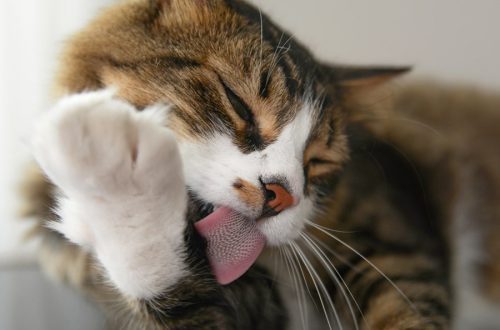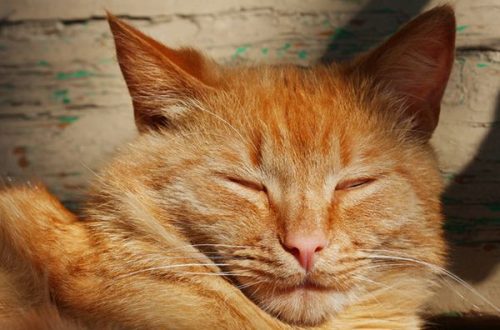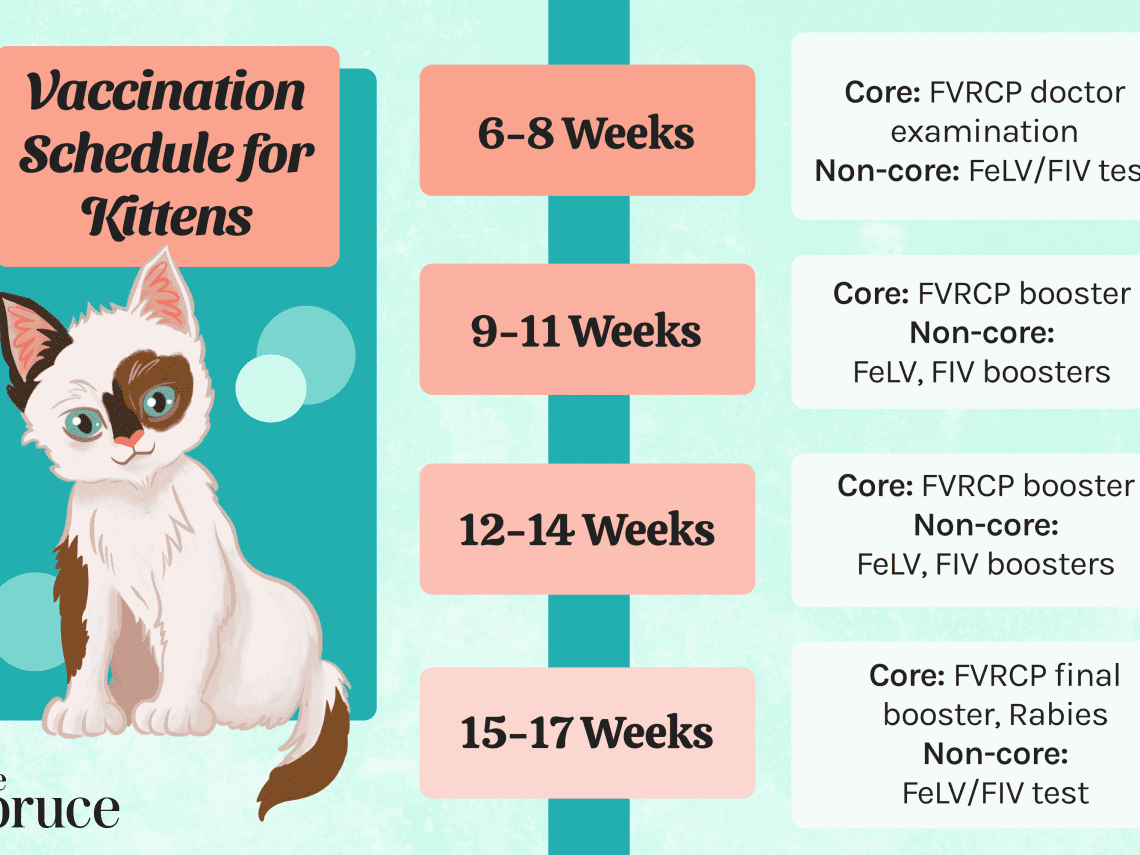
What vaccinations do kittens need and at what age are they given?
Kitten owners have to go through a number of important stages: the first appearance in the house, accustoming to the tray, getting to know other pets and many others. Assuming a new role as the owner of a furry friend, you need to understand that it entails a lot of new responsibilities.
Hill’s experts compiled a list of essential vaccinations recommended by veterinarians for kittens and explained why they are important for a new furry family member. Before consulting with a veterinarian, you can study it, and then develop an optimal schedule.
Contents
When a kitten is vaccinated
When is the first vaccination given? A kitten’s ability to resist disease begins with a healthy mother cat. According to the American Society for the Prevention of Cruelty to Animals (ASPCA), babies get antibodies to fight diseases from their mother’s milk. In most cases, kittens are weaned around the 8th week, and the first vaccinations are given at the age of 6 to 8 weeks, that is, at about 2 months. The kitten is then given boosters every three to four weeks until it reaches 16 weeks of age or until the full series of vaccinations is completed.
If your pet is over 16 weeks old, your veterinarian can help determine if, what vaccinations are needed, and at what age.
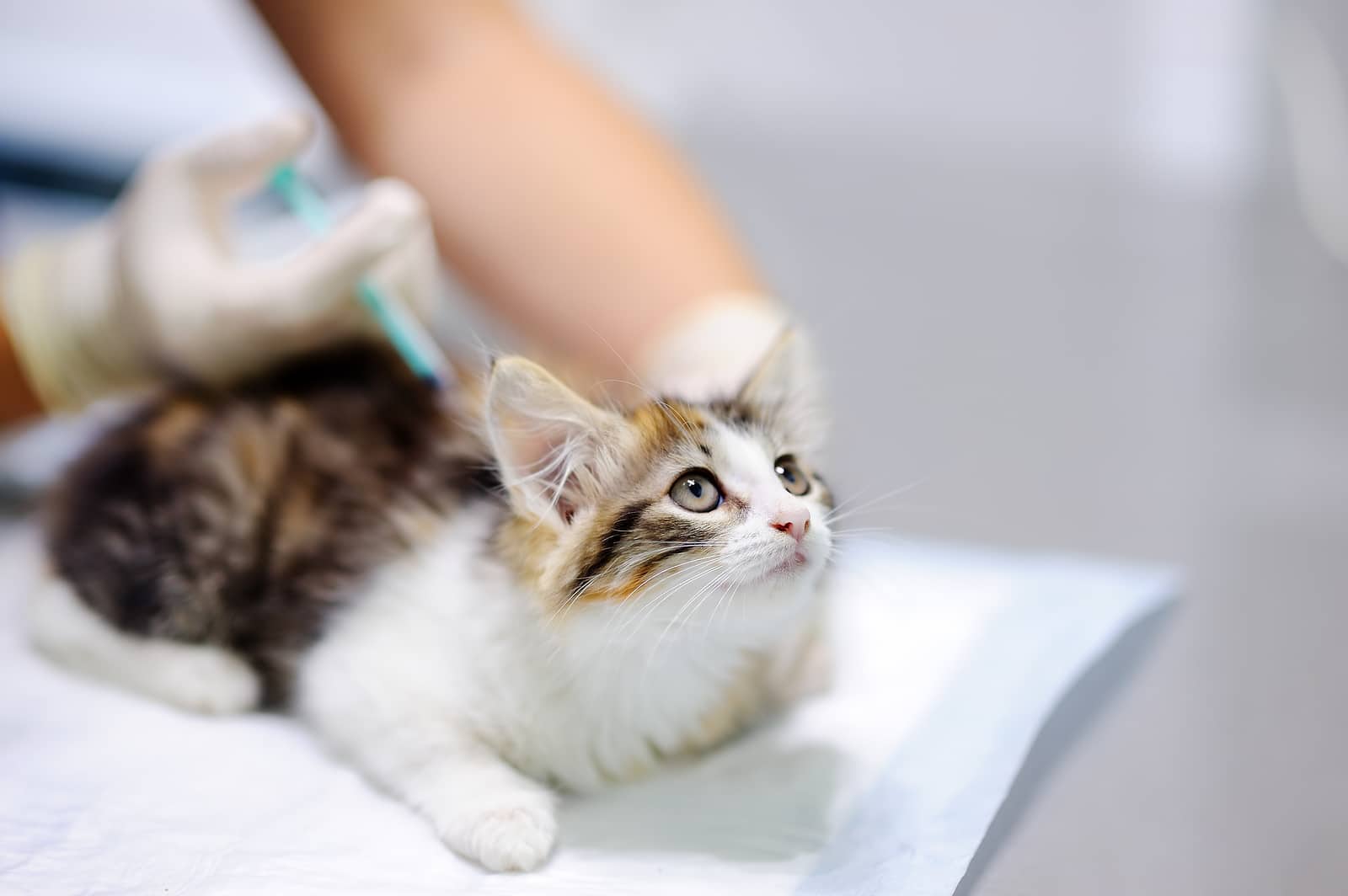
Vaccinations that can be given to a kitten up to a year
Bordetellosis, often referred to as kennel cough in dogs, is a highly contagious respiratory disease that many veterinarians recommend vaccinated against. It can be transmitted through sneezing and coughing, especially in families with multiple pets. It is important to remember that a kitten can be infected with it even before the appearance in the house, especially if he grew up with other kittens or adult cats. Under no circumstances should a cat be vaccinated for dogs.
Feline calicivirus – one of the most common respiratory diseases, to which the smallest kittens are especially susceptible. The main symptoms include swelling of the face and joints, hair loss, and the appearance of scabs or ulcers on the skin. Feline calicivirus can also infect internal organs such as the lungs, pancreas, and liver. The vaccine against the disease is considered one of the mandatory vaccinations for kittens, so the veterinarian will most likely recommend it to protect the pet.
feline leukemia, according to the ASPCA, is “one of the most commonly diagnosed diseases … in domestic cats.” Even if the owner does not plan to vaccinate the kitten against leukemia, it is necessary to discuss with the doctor the testing of the pet for the presence of the disease before bringing it home. Leukemia often develops in cats without any external symptoms. This means that the kitten can become infected with it and bring it into the house without the knowledge of the owner. According to the ASPCA, feline leukemia weakens the immune system and makes the cat susceptible to many other diseases, including anemia, kidney disease, and lymphosarcoma.
Feline herpesvirus type 1 causes conjunctivitis and upper respiratory problems in cats. The vaccine against this disease is included in the list of mandatory. Herpesvirus, also called viral rhinotracheitis, can affect cats of all ages. However, like any herpesvirus, it is species-specific, so the feline variety is not dangerous to owners or other pets, including dogs, birds, and fish.
Chlamydia, which is passed from cat to cat through close contact. Unlike other feline respiratory diseases, chlamydia is not usually fatal. It most commonly presents with red, swollen, or watery eyes and may require antibiotic treatment, according to the European Advisory Board for Diseases of the Cat. The chlamydia vaccine is not required, but your veterinarian may recommend it.
Panleukopenia, which is also called cat distemper. Feline distemper is highly contagious to cats and in many cases is fatal. It is often passed from an untreated mother cat to her kittens. The virus attacks the white blood cells and cells of the intestinal mucosa and is a common cause of “fading kitten” syndrome. The Spruce Pets explains that signs of withering syndrome in the smallest kittens can include a lack of sucking reflex and low body temperature. Distemper vaccine is considered recommended.
- Rabies. According to the Centers for Disease Control and Prevention, the rabies virus is transmitted through the saliva of a sick animal and can infect all mammals, from dogs and cats to bats and foxes. Undiagnosed rabies is extremely dangerous for humans. Cats are more likely to contract rabies each year than dogs and can transmit it to other animals or humans if they carry the disease. Therefore, in some cities, when registering cats in hotels for pets or hospitals in veterinary clinics, owners may be required to confirm vaccination against rabies.
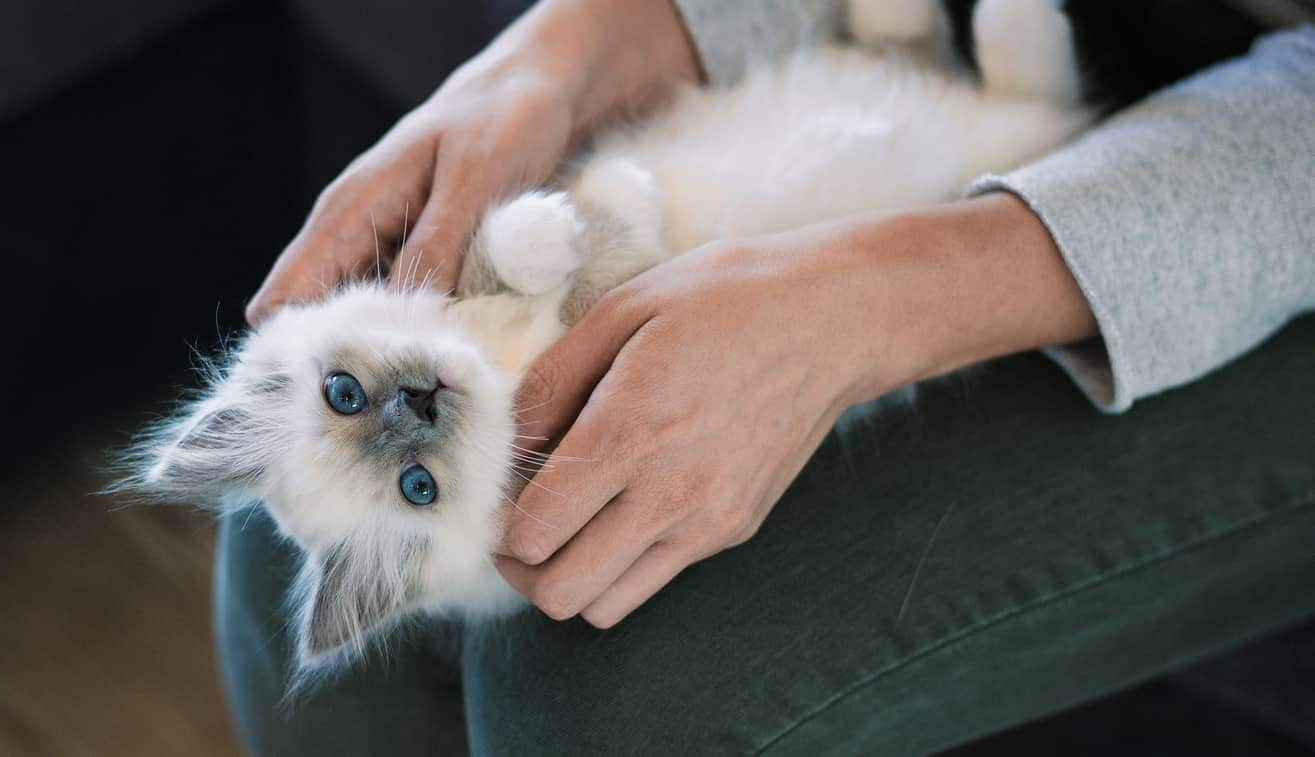
Veterinarian advice
Deciding which vaccinations are right for your pet can be tricky, so you should always consult with a professional. The veterinarian will ask questions about the kitten’s lifestyle and its new environment in the house. Typically, these questions include the following:
Where did the kitten come from? From a shelter, a pet store, or was it found on the street?
Was the kitten kept with other animals before it was adopted? If yes, with which ones?
What other animals are at home?
Does the owner plan to travel with the kitten or perhaps leave it in pet hotels while traveling?
Any questions must be answered honestly. The more information a veterinarian knows, the easier it will be for them to decide which vaccinations to give their new furry family member.




